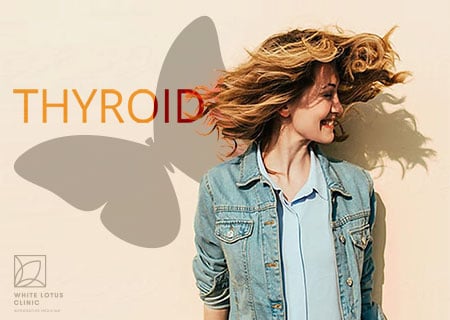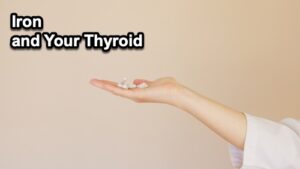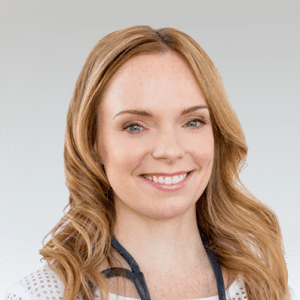Get Naturopathic treatments for your thyroid - Toronto
A special focus for our clinical team is naturopathic thyroid health. We’ve been supporting thyroid patients with naturopathic and functional medicine in Toronto and Ontario for many years, and we treat thousands of patients with most types of thyroid conditions.
Thyroid problems are common, impacting quality of life for millions of people in Canada alone.

Let us help you bring your thyroid back to health
As naturopathic doctors our approach to thyroid conditions is truly holistic. We prescribe natural desiccated thyroid hormone (NDT) for patients who require thyroid hormone replacement therapy. We also assess and treat the various factors that commonly affect thyroid disease including nutrient deficiencies, cortisol, imbalances in sex hormones (estrogen, progesterone, DHEA, testosterone), markers of inflammation, gut health and more.
Due to our understanding of hormones and their interrelationships, our naturopathic doctors have specific experience with thyroid conditions along with other hormonal imbalances such as menopause, infertility, PCOS or insulin resistance.
We treat most types of thyroid problems, including hypothyroid, hyperthyroid, and Hashimoto’s, also known as autoimmune thyroiditis. In many cases, thyroid disease has genetic links and runs in families.
A patient is diagnosed as hypothyroid if they do not make enough thyroid hormone. There are a variety of symptoms associated with this including fatigue, brain fog, weight gain, dry skin, hair loss and high cholesterol levels. Hypothyroidism is very common. Most cases of hypothyroidism are caused by Hashimoto’s – an autoimmune condition that gradually damages the thyroid gland.
A patient who makes too much thyroid hormone is assessed as hyperthyroid. This is often associated with Grave’s Disease, an autoimmune condition that causes the thyroid to increase its output of hormone. Hyperthyroid is not as common as hypothyroid.
Some patients with any type of thyroid condition may present with enlarged thyroid glands (goitre) and/or thyroid nodules.
Thyroid Testing we use in our clinic
- TSH
- free T3
- free T4
- Anti TPO
- Anti TG
- Reverse T3
Cortisol and Adrenal testing for Thyroid Conditions
The adrenal glands may be assessed through urine, blood or saliva to determine the levels of cortisol in the body. These adrenal hormones influence thyroid function. Abnormal amounts or disruptions to the daily rhythm of the stress hormone cortisol may inhibit thyroid hormone function.
Testing for Other Factors that Affect the Thyroid
After a case history, your naturopathic doctor will suggest relevant testing for areas that could be impact your thyroid function. These are very individual, however some of these include iron, vitamin B12, vitamin D, magnesium, zinc, inflammation, insulin resistance and many more.
Testing for Iodine, Essential and Toxic Elements
We offer dried urine iodine testing for patients who are concerned about either high, or low iodine intake. For patients who want to go deeper, we offer testing for other main elements associated with thyroid function. These include Selenium, Bromide, Lithium, Arsenic, Cadmium, and Mercury.
Get your thyroid tested with us
Thyroid Holistic Treatment including NDT (Natural Desiccated Thyroid)
We focus on ensuring that your thyroid health is supported with a combination of nutrition, supplements, lifestyle suggestions and when needed, natural thyroid hormone replacement (NDT) by our prescribing naturopathic doctors.
We also have a great deal of experience with patients who have been on T4 only medication (Synthroid) with normal TSH levels, yet who do not feel well. Our approach is to support thyroid hormone conversion and/or provide a prescription for NDT – a natural hormone replacement medication that contains both T4 and T3. The conventional medication, levothyroxine, contains only the inactive form of thyroid hormone: T4.
When prescribing NDT we are precise and methodical in our approach as there is a “sweet spot” this medication which is often quite exact.
For patients with hyperthyroidism, we offer natural treatments that can reduce excessive levels of thyroid hormone, often allowing patients to recover normal thyroid function over time as the thyroid heals.
FAQs
Do I need a referral to see an endocrinologist in Ontario?
In Ontario, family physicians and nurse practitioners can refer to Endocrinologists. No referral is required to see one of the naturopathic doctors for thyroid health at our clinic.
Can I refer myself to a specialist?
You cannot refer yourself to a specialist such as an endocrinologist in Ontario. Although we do focus on the diagnosis and treatment of thyroid disease, we cannot use the term specialist as this is a protected term.
What kind of doctor treats thyroid conditions?
A variety of different types of doctors can treat thyroid conditions including family physicians, nurse practitioners and endocrinologists. Certain naturopathic doctors also focus their practice on treating thyroid conditions. Our naturopaths have this focus, and our clinical director Dr. Fiona has 20 years of clinical experience treating thyroid disease, and serves as a board member of the Endocrinology Association of Naturopathic Doctors.
Start treating your thyroid with one of our naturopathic doctors
all of our doctors have all qualified for and received their prescribing license for NDT.
Recent Articles on Thyroid

Thyroid and Iron Deficiency
Your iron status is extremely important when it comes to thyroid health. If you are

Thyroid and Cholesterol Link Confirmed Via Genetic Analysis
At the clinic, we often see that thyroid hormones and cholesterol/lipid levels are strongly linked in our patients.
Clinical studies have shown in the past that treating patients with thyroid hormones can improve cholesterol levels. However, it has never been clear that suboptimal thyroid hormone levels were directly responsible for causing high cholesterol since so many other factors are involved when a patient is hypothyroid.

Thyroid & Reproduction: How thyroid health impacts fertility, pregnancy and postpartum outcomes
Dr. Kelly Clinning, ND, discusses how thyroid health can affect a woman’s reproductive cycle, from fertility through to postpartum issues.






